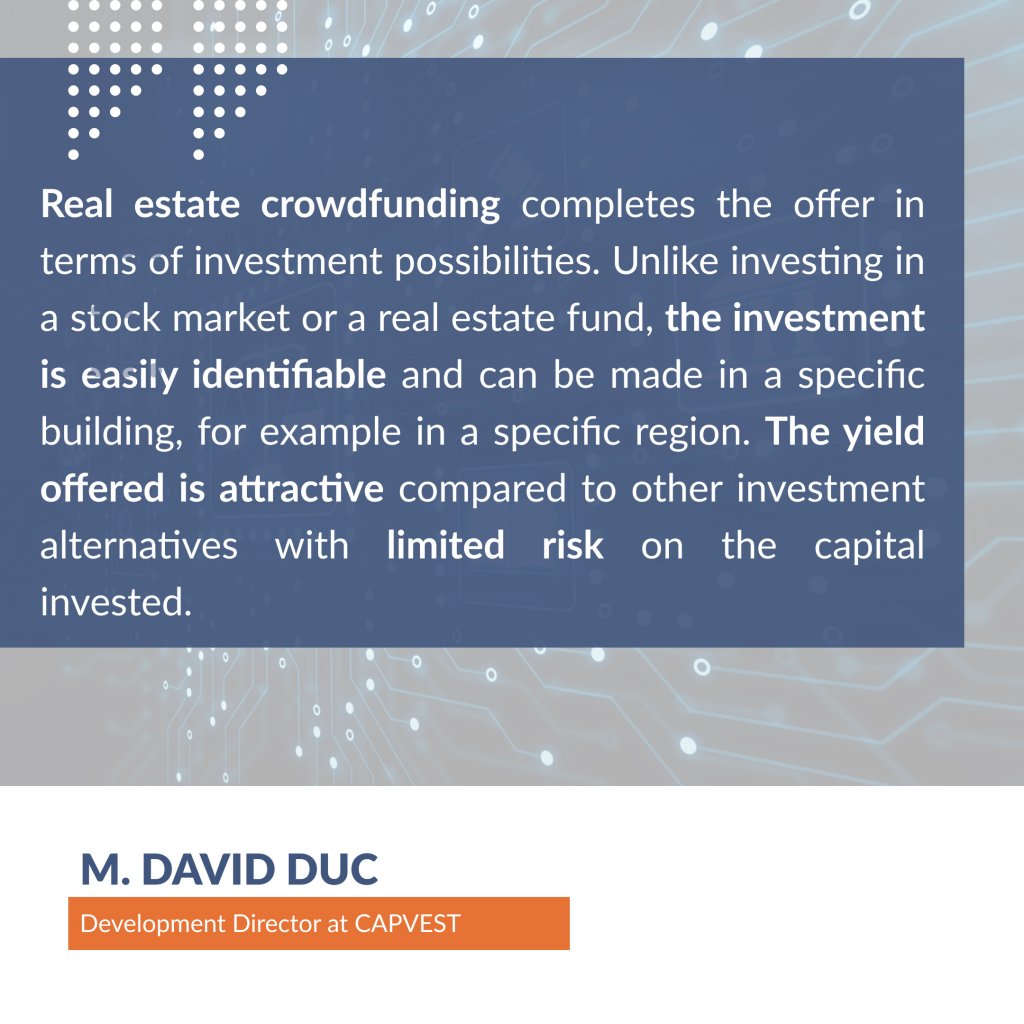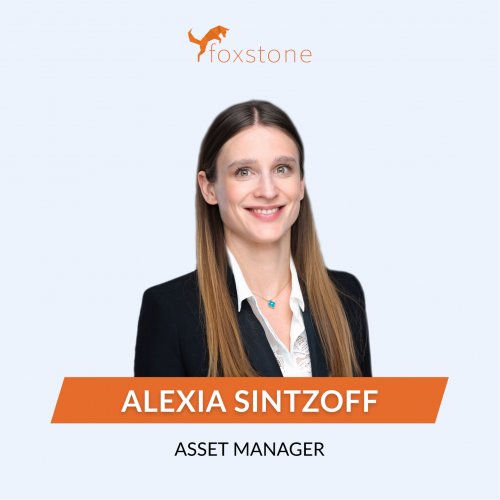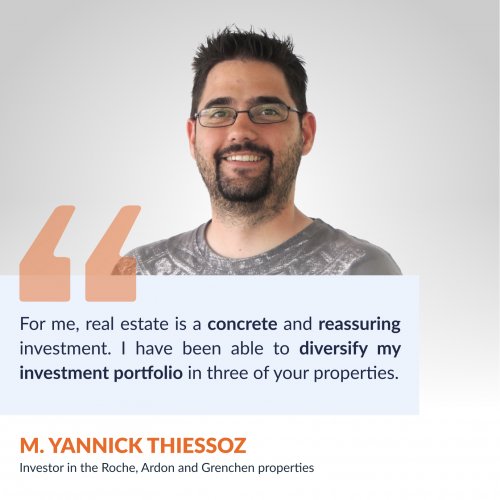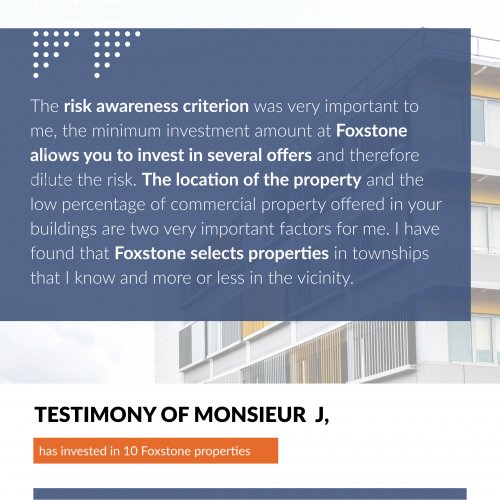Testimony of David Duc, Development Director at CAPVEST

The Foxstone model is ideal for individuals wishing to invest a set amount of money directly in real estate, while agreeing to hold an unclear share of the property and earn a return. The investment can be made for a reasonable amount and the risk can be diversified by investing in several residential properties.
Mr David Duc, Director at CAPVEST.
What do you think about real estate crowdfunding?
Real estate crowdfunding democratises real estate investment and also makes it available to individuals who have savings but cannot buy a flat, villa or investment property because of the large amount of equity required.
It completes the offer in terms of investment possibilities. Unlike an investment in a stock market or in a real estate fund, the investment is easily identifiable and can be made in a specific building, in the region for example. The return offered is attractive compared to other investment alternatives with limited risk on the capital invested.
What is the outlook for the residential property sales market in Switzerland?
The market is currently very dynamic. After two years of difficulties due to the pandemic, we currently have four projects in the construction phase, corresponding to approximately 400 homes, for which all lots are already reserved or sold. Three new residential PPE projects should be marketed before this summer.
However, we remain attentive to the evolution of sales prices, which have risen significantly in recent years, and to the evolution of construction costs. We are also monitoring the rise in mortgage interest rates, which have returned to 2013 levels in a few months. These two factors combined could reduce the number of potential buyers. We therefore strive to keep construction costs under control in order to offer quality projects at a competitive price level.
What do you think of the Foxstone model and its crowdlending solution for developers?
The Foxstone model is ideal for individuals wishing to invest a set amount of money directly in real estate, while agreeing to hold an unclear share of the property and earn a return. The investment can be made for a reasonable amount and the risk can be diversified by investing in a number of residential properties. The process that Foxstone has put in place is clear and easy to implement for their investors.
The model developed for developers allows them to optimise the equity invested in each project and thus to realise more projects in parallel. It also allows, for projects that are already well advanced, to partially anticipate profit taking while keeping control of the project until delivery to future owners. This solution offers an alternative or a complement to funds raised from traditional banking institutions.
How did the collaboration go when financing part of the residential construction project in Tour-de-Peilz (VD)?
As this was the first investment of its kind by Foxstone, the model had to be defined and validated together. Once the documentation was finalised, the fundraising was very quick and very well managed by Foxstone. The funds raised were available very quickly. Our financing was initially for a one year term with an option to extend, but with the sale of the last PPE lots, the loan was finally paid off after only 6 months.
What are the main issues in property development today?
At Capvest we attach great importance to the architectural quality of the projects we develop and to the services offered in the future homes. We must therefore choose our partners carefully and ensure that we keep control of development costs. The objective is to be able to offer competitive selling prices to our customers.
We must also ensure that the new projects we develop meet the expectations of future buyers in terms of services, surface area and quality of construction. Sustainability is also a major issue in property development. It is no longer possible to design a real estate project that does not include outdoor facilities that respect the biodiversity of the site and the quality of life of future residents. It is also necessary to push towards the construction of buildings that consume little energy or are able to produce it themselves. The choice of building materials and construction processes should also be taken into consideration to reduce the environmental impact of future housing.
Thank you to Mr. David Duc, Development Director at CAPVEST, for agreeing to share his testimony as a Foxstone partner.
For more information, please consult our FAQs.



